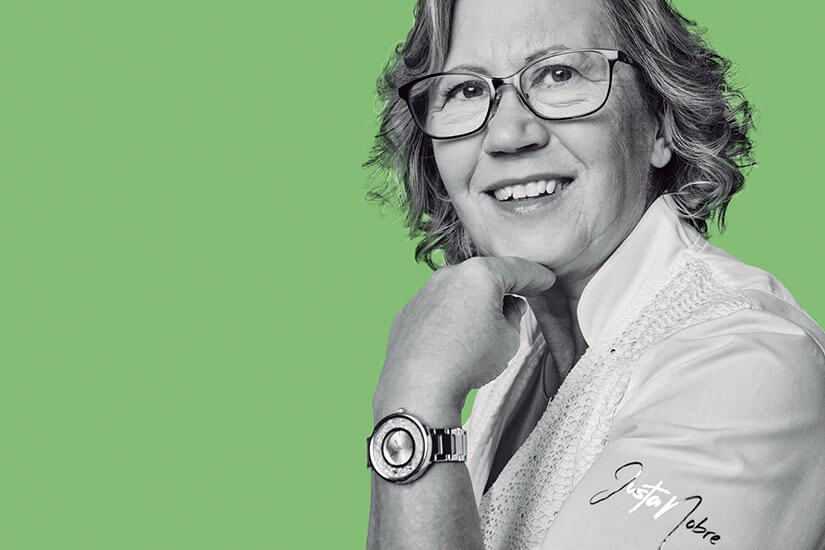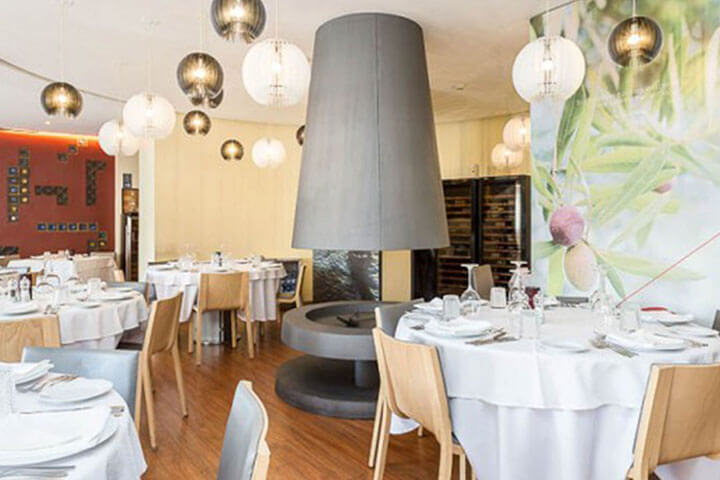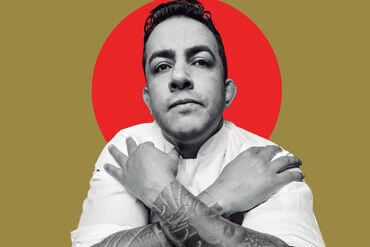
Chef Justa Nobre
Justa Nobre is a renowned name of Portuguese cuisine, greatest example of Portuguese flavours. Born in the heart of Trás-os- Montes, this chef brought the soul and flavour of Portuguese traditional cuisine to the capital. It didn’t take long until she opened her own space which, since then, has become a reference of Portuguese gastronomy.
Known for reinventing good Portuguese cuisine, Justa Nobre always cared about using new and quality products when cooking her recipes.
She became a cook at 21. Being part of a family of 7 siblings and living in a village, Justa explains that back then only women cooked: “I was still very small and coming home from school I would take the lids off the pans to try the meals and, already then, I would say if they were lacking salt or any seasoning, I already had a very good palate”, she describes. In doubt between two very different callings, being a nurse or a cook, cooking spoke louder.

Santola soup
This happened 40 years ago. Today, Justa recalls she really liked to cook and always enjoyed challenges. Her husband loved the hospitality sector, so they killed two birds with one stone and, while Justa focused on cooking, her husband left his job as an office worker to become a maître. “We went together on that adventure”, the chef concludes.
The restaurant started immediately receiving high-end customers, and the evolution was almost automatic: “we started having sirloin steak, more expensive fish, I would take products to the restaurant to try new dishes and always cooked very intuitively”, says Justa Nobre.
When people ask what do I like to do when I’m sad, I say «I like to cook», I feel really good in the kitchen
Justa describes herself as a very direct person, very connected to the family and with a strong sense of help. She never took courses but she kept competing with herself. In 1988 she got her first space, in 1990 she opened the first restaurant called “Nobre”, at Ajuda. The stubbornness of wanting to do always better led Justa to having a 100% Portuguese cuisine: from a good croquette to a good soft pastry pastel, to a good lobster, a good seafood cataplana. “I like to work with Portuguese cuisine because it has a lot to give us”, she highlights.
For a woman, this gastronomic world demands many sacrifices, “my hardest effort was almost not raising my son, that’s an enormous pain, but I worked for my son to have a better life”. Nevertheless, the chef admits that “growing up alone makes us stronger because we end up losing fear, but it’s very tiring, I was always the captain of my ship”. Nowadays life is easier, as she already shares the kitchen full-time with her sisters, husband, brother-in-law and son.
She considers the act of creating is beautiful, and is proud of having a very discrete table service, in which they can mix more refined or more casual concepts.

Restaurant O Nobre






